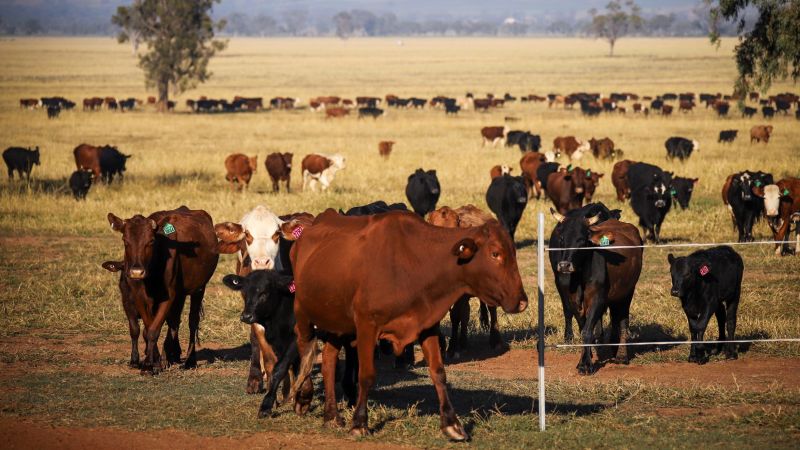China has recently lifted bans on imports from five major Australian beef processing facilities, signaling an improvement in relations between the two nations. This move comes after Beijing removed restrictions on eight abattoirs, with only two remaining subject to import bans. These bans were initially imposed between 2020 and 2022, along with restrictions on other Australian commodities such as coal, timber, and wine, following Australia’s call for an independent investigation into the origin of COVID-19. Despite the bans on certain abattoirs, Australia was still able to ship beef to China during this time.
According to Matt Dalgleish, an analyst at agricultural consultants Episode 3, the removal of these restrictions is expected to boost Australian shipments to China, which have already increased to their highest level since 2020. This increase in shipments is partly due to a shrinking cattle herd in the United States, Australia’s main competitor, leading to reduced US exports. Dalgleish suggests that China’s action may have been influenced by the lower supply of beef from the US. Last year, China was Australia’s second-biggest beef export market, receiving 240,000 tons worth about $1.6 billion, as shown by Australian trade data.
Since a change in government in Canberra two years ago, Beijing has lifted most of the trade barriers it had imposed on Australian goods. However, a ban on Australian lobster imports remains in place. Australian foreign minister Penny Wong, trade minister Don Farrell, and agriculture minister Murray Watt released a joint statement urging China to remove the remaining trade impediments, including for Australia’s rock lobster industry. They highlighted that at the peak of China’s trade impediments, Australian exports worth 20.6 billion Australian dollars ($13.6 billion) were affected.
The reasons provided by China for suspending the Australian beef processors varied, including issues related to labeling, contamination, or cases of COVID-19 among their workers. Despite this, the removal of these bans is seen as a positive development for the Australian beef industry and is expected to further strengthen trade relations between the two countries. Australia has been actively engaging with China to resolve remaining trade issues and expand opportunities for Australian exporters. These efforts aim to restore normal trade flows and support the growth of key industries like beef and lobster exports to China.
The lifting of import bans on Australian beef processing facilities is a significant step towards rebuilding trade ties between Australia and China. It reflects a mutual desire to enhance economic cooperation and address trade challenges that have arisen in recent years. Both countries stand to benefit from increased trade flows, especially in sectors like beef and lobster exports, which play a crucial role in their respective economies. As diplomatic efforts continue to address remaining trade barriers, a positive outlook for bilateral trade relations between Australia and China is emerging, paving the way for sustained economic growth and prosperity for both nations.


